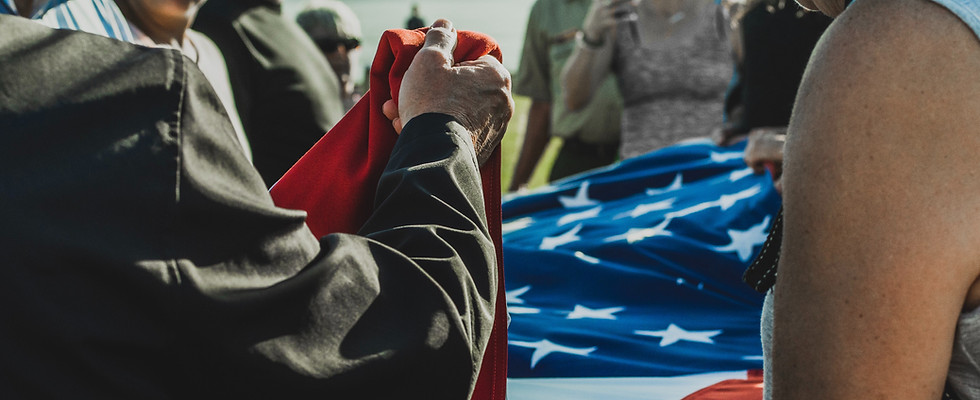Suicide In Our Community
Addressing Veteran Suicide: A Call for Awareness, Support, and Action
Veteran suicide is a devastating and complex issue that continues to impact communities across the country. Every day, too many veterans take their own lives—a stark reminder of the deep emotional and psychological wounds that can remain long after military service. At the Dwyer Programs, we are dedicated to raising awareness, providing support, and connecting veterans and their families with the resources they need to navigate the difficult challenges associated with mental health and suicide prevention.
Understanding the Crisis
Veterans are more likely to experience conditions that increase the risk of suicide, including Post-Traumatic Stress Disorder (PTSD), depression, anxiety, traumatic brain injury (TBI), and substance abuse. These challenges, combined with the difficulty many veterans face when transitioning back to civilian life, can create overwhelming feelings of isolation, hopelessness, and despair.
Statistics show that the rate of suicide among veterans is significantly higher than that of the general population. According to recent reports:
-
On average, more than 16 veterans die by suicide each day.
-
Veterans ages 18-34 have the highest rates of suicide.
-
The risk of suicide among veterans is 1.5 times higher than that of non-veterans.
These figures point to a clear and urgent need for continued intervention and support.
Contributing Factors
There is no single cause of veteran suicide; instead, it often results from a combination of factors, including:
-
Mental Health Struggles: PTSD, depression, and other mental health disorders often go untreated or unaddressed due to stigma or lack of access to proper care.
-
Transition Challenges: The shift from military life to civilian life can be jarring. Many veterans struggle with finding purpose, employment, and community, which can lead to feelings of disconnection and isolation.
-
Trauma and Loss: Combat experience, the loss of fellow service members, and the moral injuries that can arise from war can weigh heavily on a veteran’s emotional and psychological well-being.
-
Substance Abuse: Some veterans turn to drugs or alcohol to cope with emotional pain, which can exacerbate mental health issues and contribute to suicidal thoughts.
-
Lack of Social Support: Veterans who feel isolated or unsupported by their community or family are more vulnerable to suicidal ideation.
The Role of Peer Support
One of the most effective tools in suicide prevention is peer support. At Dwyer Programs, we believe in the power of veterans helping veterans. Our Vet2Vet program creates a safe, confidential space where veterans can connect with others who understand their unique struggles. This peer-to-peer approach provides emotional support, reduces isolation, and fosters a sense of belonging, which can be crucial in preventing suicide.
Our Commitment to Suicide Prevention
The Dwyer Programs are dedicated to creating safe spaces for veterans and their families to seek help before it’s too late. Through our peer support model, community outreach, and educational efforts, we aim to:
-
Raise Awareness: Educate the public about the challenges veterans face and the resources available to prevent suicide.
-
Provide Connection: Help veterans and their families connect with supportive communities, mental health resources, and each other.
-
Foster Hope: Reinforce that there is hope for healing, and no veteran should feel that they are fighting their battles alone.
How Dwyer Programs Can Help
If you are a veteran or know a veteran who is struggling, reaching out for help can make all the difference. The Dwyer Programs offer:
-
Peer-to-Peer Support: Speak with fellow veterans who understand your challenges in a confidential, non-judgmental environment.
-
Access to Resources: We can connect you with local mental health professionals, counselors, and other community-based services that are equipped to address veteran-specific issues.
-
Community Events: From support groups to wellness activities, we offer a variety of ways for veterans to engage and build strong, supportive connections with others who understand.
You Are Not Alone
Veteran suicide is a tragedy that we can prevent by coming together as a community. If you are struggling with suicidal thoughts or know a veteran who is, we urge you to reach out. At Dwyer Programs, we are here to support you, listen to you, and help you find the strength and resources you need to keep moving forward. There is always hope, and there are always people who care.
Contact us today to learn more about our peer support programs, community outreach, and mental health resources. Let’s work together to end veteran suicide.

